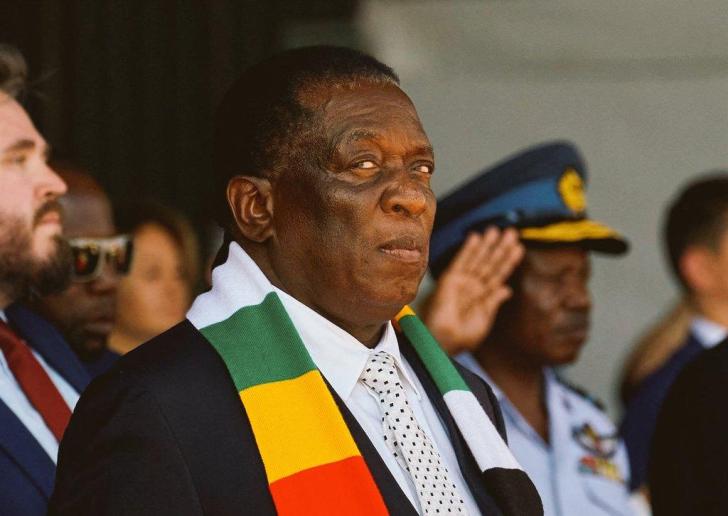News / National
Mnangagwa blasts US for crippling Zimbabwe's economy
25 Oct 2024 at 07:53hrs |
0 Views

President Emmerson Mnangagwa has expressed grave concern over the suffering endured by ordinary Zimbabweans due to economic sanctions, despite these measures being targeted at specific individuals. His remarks come as the Southern African Development Community (SADC) observes October 25 as Anti-Sanctions Day, calling for the removal of the embargo that has been in place since the early 2000s.
In a statement, Mnangagwa underscored the detrimental effects of the sanctions, particularly on the most vulnerable segments of society. "It is the ordinary people, particularly the vulnerable, who bear the brunt of these heinous and inhumane measures, which also stifle economic and social progress in Zimbabwe," he said.
The SADC chairperson highlighted that the sanctions are a significant barrier to Zimbabwe's economic advancement. In solidarity with Zimbabwe, the regional bloc is demanding the immediate and unconditional removal of what it describes as unwarranted and cruel sanctions, which violate the fundamental principles of international law and the United Nations Charter.
In March of this year, the United States announced the termination of its broader sanctions program against Zimbabwe, initially imposed in response to violent land seizures from predominantly white commercial farmers in the early 2000s. However, the U.S. subsequently tightened restrictions on certain individuals and entities through the Global Magnitsky Act, which allows for visa restrictions and targeted sanctions on foreign officials involved in gross human rights violations and corruption.
Prominent figures who remain on the U.S. sanctions list include President Mnangagwa, his wife Auxillia Mnangagwa, Vice President Constantino Chiwenga, and several others linked to the government.
Mnangagwa further noted that while the region enjoys relative peace and stability, the imposition of sanctions threatens collective efforts towards regional integration and sustainable development. "Our region enjoys relative peace and stability and continues to work towards achieving a prosperous and integrated region," he stated.
The President emphasized the need for continued collaboration within the SADC community to secure a future where all nations can realize their shared aspirations without leaving anyone behind. "As a community, we have to continue working together to ensure that our region remains a beacon of hope and prosperity for generations to come," he added.
As SADC countries rally behind Zimbabwe on Anti-Sanctions Day, the call for an end to the embargo resonates as part of a broader regional strategy aimed at fostering economic recovery and development.
In a statement, Mnangagwa underscored the detrimental effects of the sanctions, particularly on the most vulnerable segments of society. "It is the ordinary people, particularly the vulnerable, who bear the brunt of these heinous and inhumane measures, which also stifle economic and social progress in Zimbabwe," he said.
The SADC chairperson highlighted that the sanctions are a significant barrier to Zimbabwe's economic advancement. In solidarity with Zimbabwe, the regional bloc is demanding the immediate and unconditional removal of what it describes as unwarranted and cruel sanctions, which violate the fundamental principles of international law and the United Nations Charter.
In March of this year, the United States announced the termination of its broader sanctions program against Zimbabwe, initially imposed in response to violent land seizures from predominantly white commercial farmers in the early 2000s. However, the U.S. subsequently tightened restrictions on certain individuals and entities through the Global Magnitsky Act, which allows for visa restrictions and targeted sanctions on foreign officials involved in gross human rights violations and corruption.
Mnangagwa further noted that while the region enjoys relative peace and stability, the imposition of sanctions threatens collective efforts towards regional integration and sustainable development. "Our region enjoys relative peace and stability and continues to work towards achieving a prosperous and integrated region," he stated.
The President emphasized the need for continued collaboration within the SADC community to secure a future where all nations can realize their shared aspirations without leaving anyone behind. "As a community, we have to continue working together to ensure that our region remains a beacon of hope and prosperity for generations to come," he added.
As SADC countries rally behind Zimbabwe on Anti-Sanctions Day, the call for an end to the embargo resonates as part of a broader regional strategy aimed at fostering economic recovery and development.
Source - NewZimbabwe
Join the discussion
Loading comments…































